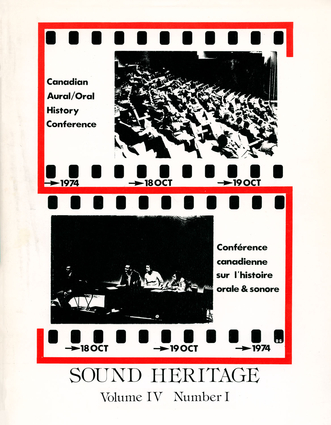Overview
I was particularly pleased to have Simon Fraser University play host to the Canadian Aural/Oral History Conference, and to have had the opportunity to address the delegates, both as the new President of the University and as a person familiar with aural history.Aural history is an important new field of historical investigation, not only as a supplement to existing documents, but also as an essential method for the collection of material on those members of our society who are not documented any other way. At times, aural history appears to be a panacea for all the problems that arise in the study of modern history, past and present. Certainly, its assets are great. It explores, as does no other method, the human responses that are the basic fabric of society.But aural history research will not resolve all of the issues of historical interpretation. It may, in fact, create new problems of selection and analysis. How will informants be chosen? How can the truth of the statements be verified? What are the effects of age on the human memory? Can the words of a living person be safe-guarded against irresponsible use? These and many other issues will have to be resolved.Aural historians have a special obligation to their informants which does not exist in other forms of research. The tape recorder obtains information from a living person whose recollections can then be utilized and interpreted in a variety of ways that the subject may not have considered. Thus, the interviewer should be sensitive to the feelings of the interviewee and the good will which made the interview possible. Without this consideration, the freedom and ease with which people speak will be jeopardized and the usefulness of the research for society will be lessened.The careful collection and use of aural history materials on the other hand can produce invaluable material for the social scientist and can be a way of giving individuals and communities a sense of their own identity. Aural history can provide an essential link between professional scholars and their universities and the communities in which they exist, a link which has traditionally been lacking. This Conference and the formation of the Canadian Aural/Oral History Association are a major step toward establishing standards for aural history research in Canada. The Association will also provide a framework for the exchange of information in this new field.I congratulate the aural historians from across Canada on their work and on their creation a national organization. Their efforts, defined and refined by practice, will provide an enormous fund of material that will increase our understanding of Canadian society and the Canadian past.—Pauline Jewett

